Don't wanna be here? Send us removal request.
Text
Decision at the Movies: Eight Grade or the New Mission: Impossible?
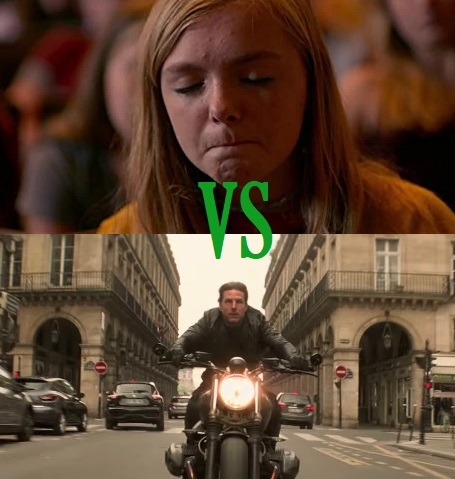
If your heading out to the movies today, you just might be faced with a dilemma. Eight Grade or Mission: Impossible – Fallout. The small-budget human drama, lauded by critics and audiences alike, or the Hollywood action-franchise blockbuster . . . lauded by critics and audiences alike.
To the vast majority of you this will be an easy choice. Do you like relentless action intensity? Or do you prefer a nuanced emotional journey? They’re very different, you see. But some of you might actually want to see both. (I sure did.) Because, hey, we’re humans goddammit, with complex and varied tastes.
So, what do you choose?
Allow me to help.
You see to us—the eclectics—the important difference is not in the two films’ emotional experiences, but in the levels of comfort each offers.
Mission: Impossible – Fallout is the best film the franchise has seen in a very long time. Maybe even overall. Where as, the last two instalments felt somewhat formulaic and more than a little pat, Fallout reinvigorates its none-too-original narrative. It feels like you’re watching a Mission Impossible film for the very first time. But at the same time, you really aren’t. You have seen such films before. So even though it’s exciting as all good hell, you know what your getting. It is, in every way, a Mission Impossible film, and a pretty great one at that.
Eight Grade on the other hand, offers up something fresh. Is it an original idea for a story? Are you kidding me? A young (almost) teenager contends with the social pressures and expectations that come with being alive at that age? No. Not original. Of course not. But how it’s done. How it feels to watch it. Simultaneously grounding the stakes in both the protagonist’s and the audience’s points of view. So we—wise old adults that we are—can chuckle behind our hands at Kayla’s naivety, even as we earnestly share her rather callow goals. We can be terrified as she blindly steps into situations she’s too young too recognize, yet wholly empathize with her childish perceptions of them. It’s a film about being young and struggling, and an original one at that. And also a pretty great one.
So, what does this all come down to? See both. Okay, say you really have to pick just one, how about this: if you’re looking for a familiar experience which is none-the-less acutely gratifying, go with Mission: Impossible. If you want something fresh and new, something you haven’t quite experienced before—but with confidence that’ll enjoy it—check out Eight Grade.
Good enough?
Really? You’re REALLY going to make me pick one? Fine. Eight Grade. Okay?
5 notes
·
View notes
Text
A Family’s Desperate Escape
Looking for a GREAT READ?
Want to support the INDIE-PUBLISHING and writing?
Or HELP FAMILIES IN NEED*?
Just in the market for a new book?
Check out ICARUS.
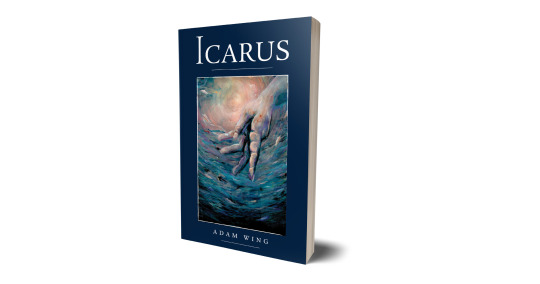
In a time remembered only in myth, on the Isle of Crete where a brutal tyrant rules absolute, a boy lives a life of isolation. His father, desperate to protect him, forbids him from so much as speaking to anyone. But as all children learn to confound their parents, Icarus ventures into a bond of friendship and brotherhood, uncovering emotions he never knew existed…powerful emotions he has only just begun to understand.
But his friendship with the son of an enemy sets events in motion that endanger them all. Even as his father plots their escape, death settles on all sides. Pursued by tragedy, they make their bid for freedom. To safety … as long as Icarus remembers his father’s words…
Get your copy anywhere ONLINE, or order it at your local bookstore.
*In the spirit of the myth, all the royalties go to help families forced to flee the their homes, not knowing where they will end up.
3 notes
·
View notes
Text
Futurama’s Spiritual Successor? Maybe . . .One Day
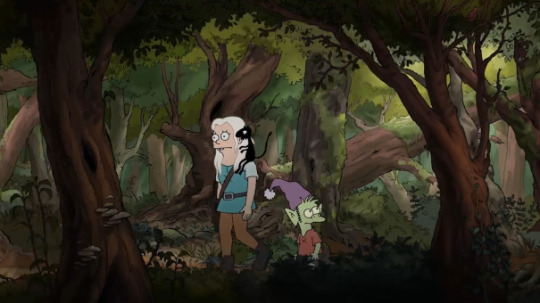
For most my adult life, one TV series stood alone in its ability to pull silly, and often stupid, laughs from my grinning lips, tell a complex and innovative story, and on not-to-rare occasions, break my goddamn heart. That show was Futurama. In recent years a number of others have stepped up to stand beside the animated comedy-sci-fi, and in some cases even surpass it. (Rick and Morty and Bojack Horesman come to mind.) But to me Futurama will always be the first. And I’ll admit in the years since it’s been cancelled, I’ve never stopped harbouring hopes that the Planet Express Ship would one day—yet again—return to make its deliveries.
This seems a little less likely now.
Because only yesterday, upon its very release, I learned of Matt Groening’s spiritual successor to Futurama. Disenchantment.
So 24 hours later I’m 80% through the first season (8/10 episodes). And a part of me thinks, yes, maybe it WILL be the show I’ve been hoping for. But it isn’t yet. Where Futurama has a broad cast of central characters (seven, with varied outlandish personalities and quirks), Disenchantment has a bare three. It has, however, already created a rich world to play in with for tonnes of potential for future stories and hijinks. This was essential in Futurama’s success.
I like the protagonist, Bean. She’s funny and empathetic. It’s a nice change of pace to have a female lead for such a show. But as a character she’s not terribly motivated. Where Fry was motivated by trying to reconcile himself to a strange, alien future, Bean just seems to be trying to live her best life. I mean that’s great, but it’s not much in the way of a character premise.
Plus it’s 2018; do we really need another unrequited love subplot? Particularly a boy-crushing-on-girl one? Still?
But where the show shines is in it’s tone. This it gets exactly right. It feels the way Futurama felt. Not like not like an imitation. No, it hasn’t shone me anywhere close to the heart I saw in Futurama. But that kind of thing takes time. And that’s exactly what I think Disenchantment has earned from me. Time. It’s got potential. I’m excited to give it a chance to prove itself.
9 notes
·
View notes
Text
Sorry to Bother You (17/20): Dark, Hilarious and Important
Wow, Sorry to Bother You is freaking crazy. (Crazy good.) Part Get Out, part Birdman, it’s beautifully structured, artistically rendered, filled with characters as fascinating as they are faceted, aggressively nuanced, and unapologetically political. And best of all, it surprised me.
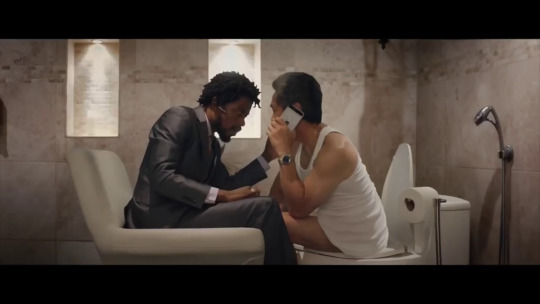
Honestly, I’m having a hard time figuring out what (specifically) to say about this film; there’s so much going on in it. I read somewhere Sorry to Bother You is the first major motion picture, artistic reaction to the Trump era. I think this must be true. Not only can I come up with no other that fits the bill, Sorry to Bother You encompasses so many different modern political themes, it’s difficult to keep track of them all. Race, income disparity, sensationalist media, class manipulation, dehumanization, modern slavery, and God, I don’t even know what else. And it’s all so mixed and layered it’s nearly impossible to separate any one from the others. Yet, through it all, a single theme endures: power. Specifically, what it’s like to lack it, what it’s like to have it, and how we decide to use it.
Sorry to Bother You is the story of a young, black, newly-hired telemarketer (Lakeith Stanfield) who learns he’ll find much greater success making calls with his ‘white voice’ (David Cross). But really, that’s just the outset of his story. Cassius’s journey is long and winding with internal and external conflicts at every step
The film pulls you in right from the start. Without being particularly intrusive about it (as you would get from, say, a Wes Anderson film), Sorry to Bother You bombards you with evocative visuals which more or less guarantee your eyes won’t drift from the screen. As the stakes grow higher through the story’s progression, the surroundings seem to close in around you in the most satisfying way. Humour is biting, perfectly timed, and relentless. And though the film always expresses itself with full seriousness, it never fails to be funny (even if just in tone). What we end up with is a flowing succession of high-tension moments, but with very little of the audience-stress we would usually expect to come with them.
I guess what I’m trying to say is, though Sorry to Bother You tackles some pretty serious topics, though it executes this conversation in a way meant to throw off your equilibrium, it manages to do this in a way that’s easy to watch. Certainly, easy to enjoy.
10 notes
·
View notes
Text
A Family’s Desperate Escape
Looking for a GREAT READ?
Want to support the INDIE-PUBLISHING and writing?
Want to HELP FAMILIES IN NEED*?
Just in the market for a new book?
Look no Further than ICARUS.
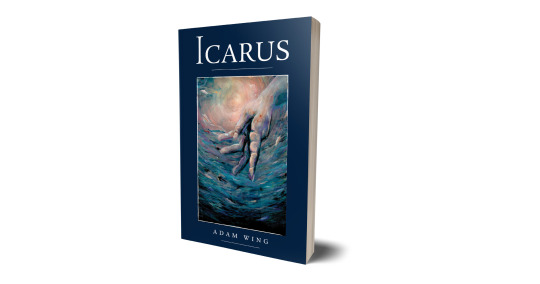
In a time remembered only in myth, on the Isle of Crete where a brutal tyrant rules absolute, a boy lives a life of isolation. His father, desperate to protect him, forbids him from so much as speaking to anyone. But as all children learn to confound their parents, Icarus ventures into a bond of friendship and brotherhood, uncovering emotions he never knew existed…powerful emotions he has only just begun to understand.
But his friendship with the son of an enemy sets events in motion that endanger them all. Even as his father plots their escape, death settles on all sides. Pursued by tragedy, they make their bid for freedom. To safety … as long as Icarus remembers his father’s words…
Get your copy anywhere ONLINE, or order it at your local bookstore.
*In the spirit of the myth, all the royalties go to help families forced to flee the their homes, not knowing where they will end up.
4 notes
·
View notes
Text
Ant Man and the Wasp (14/20): Sometimes it Takes 2 (Tries)
There will never be a GREAT Ant Man movie. I’m willing to put money on this. Paul Rudd will always be Paul Rudd. The other major, recurring characters will always be paint-by-numbers superhero generics, and the airy tone will never allow the stakes to feel higher than cartoon dog-chase.
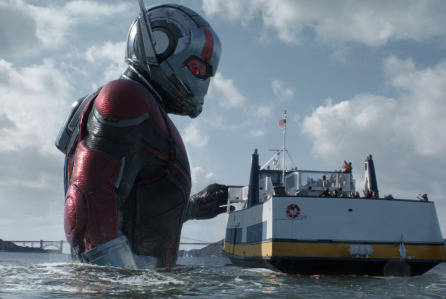
These things were true of the first film and, more or less, the reasons I was not such a fan.
They’re true again in Ant Man and the Wasp, yet somehow, I really did find myself enjoying it. Actually the reason’s pretty simple: an strong story. Unlike the first film, which always took the shortest possible path to creating conflict AM&tW weaves together a number of interesting arcs, making occasional detours to draw out a much more engaging narrative. Despite a bit of clunky exposition at the start, I found myself quickly drawn in and invested in the story.
Also, the film’s two primary antagonists are actually interesting, nuanced characters. (I know I bashed the franchise’s characters in general a few paragraphs up, but I did qualify these as ‘major, recurring characters’. And even if these antagonists survive to the end of the film (no spoilers here), and even if we were to see them in future sequels, I firmly believe either they would be relegated to bit-players, or somewhat remolded into simpler, easier fits.) They are motivated in ways we rarely get in MCU antagonist, adding a good amount of depth to the story.
And of course, there is the humour. Not unlike the first Ant Man, AM&tW doesn’t miss a beat. There is no moment left unpunctuated by a sit-com-grade punchline. But honestly, that’s not so much a problem with the film. While the narrative is strong enough to stand on its own feet, tone succeeds in always keeping things fun.
Finally, I cannot finish this review without at least mentioning the mid-credit scene at the end. It was good in a way we rarely get in these now-expected little encores. It answers some key questions regarding the film, creates a strong (if somewhat predictable) dramatic moment and (as most these scenes like to do) connects the film to the large MCU collection. Suffice to say, in a single scene, it bumped my rating of the film up a full point.
Overall, I guess I’m not judging AM&tW by the highest of bars. No, there WILL never be a great Ant Man film. There just won’t. They’ve pretty much built the franchise on elements that will ensure this. But Ant Man and the Wasp is proof positive that there can still be some pretty damn entertaining ones.
1 note
·
View note
Text
WHY ARE SPINOFFS SO FORGETTABLE? Part 3: Ocean’s 8 and Conclusion
Part 1: The Nostalgia Dilemma
Part 2: Solo
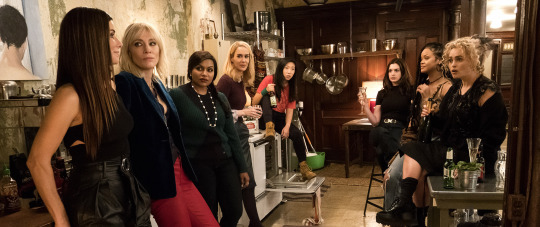
Like Solo, Ocean’s 8 offers the most generic of narratives. Unlike the Star Wars film however, Ocean’s doesn’t even bother attempting to craft a (supposedly) original story, but simply shaves down the features of the first film to present it as kind of a remake. (Not actually a remake though.)
The connections are unmistakable. Sandra Bullock plays Danny Ocean’s sister. She has a too-cool-for-school blonde sidekick. They assemble the team. They pull off an elaborate heist. There’s a personal heist within main heist. There’s some kind of twist-reveal at the end. It is so close to the original, that now by absolute necessity, it NEEDS to be featureless. Otherwise it’s no longer a spinoff; it’s not even a remake; it’s a goddamn replica of the first film. So how do they distance themselves from the original? They remove the features.
They shave off any personality whatsoever from the blonde sidekick. Cate Blanchett is an excellent actor. Why can’t I remember anything she does in this film? Probably because she just stands in as a placeholder, a tag on the screen that with the words ‘BRAD PITT ANALOGUE’ written across it.
Second, unlike previous Ocean’s films, what we get here is several sequences where they tell us, in detail, how they’re going to carry out the heist, followed by the heist itself which goes exactly as planned. No hiccup. No hitch. No fake-out. There’s a reveal at the end when they show that they folded a whole other jewel heist into the main heist and this fulfills the ‘twist’ requirement the franchise seems to expect. But it also misses the point! If the twist comes after the job is done, there are no stakes, no value. It’s the jewels in Mikey’s marble bag at the end of The Goonies. Not a part of the story, just a tacked-on reward at its close. It’s almost as if they were so busy checking off each heist movie box that they failed to recognize what each trope actually brings to the story, or how it should be utilized.
Similarly, we see this in Debbie Ocean’s successful framing of her ex-partner Claude Becker. We all saw this coming. There is no surprise, no particular satisfaction in it. Just screen time tying up a loose end. They projected this was going to happen with no real attempt to conceal it from the audience. Because it doesn’t matter if it has the desired effect, as long as they don’t forget to include it in the film.
And finally, we get to the second jewel heist (with returning Chinese acrobat, Yen). I mentioned it above, as being in the wrong place. This is not its only problem. It also fails as a reveal, as there’s no setup or hints about it beforehand. We’re just told at the end, ‘by the way, this other thing also happened. It had nothing to do with what you saw, but there you go.’
So again, like with Solo, Ocean’s 8 blindly adheres to the tropes of its genre, offering a work of no particular significance or impact. Ocean’s however, unlike Solo, fails to apply these tropes in the way they are typically most effective.
And there we are. Two more spinoffs failing to stand out. Either could have been a generic TV-movie rip-off and I would have never known the difference. Because that is the nature of the spinoff. And too few, it seems, are willing to swim against its current on this.
0 notes
Text
WHY ARE SPINOFFS SO FORGETTABLE? Part 2: Solo
Part 1: The Nostalgia Dilemma
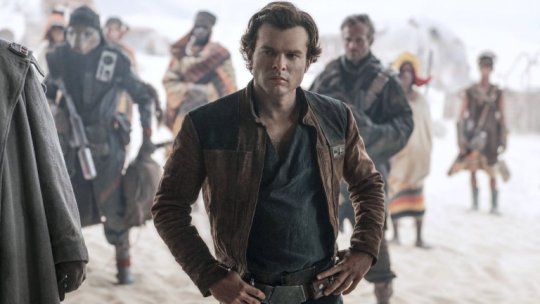
There is so little of Star Wars in this Star Wars film, that to be honest, I didn’t initially know what to make of it. Yes, it takes place in the Star Wars universe. It has names like Dryden Vos and Enfys Nest. There are blasters and droids, spaceships and aliens. Yet there is nothing—nothing—that separates it from any other sci-fi space adventure I’ve seen, read or heard of.
The character of Han Solo himself, bears little resemblance to the one we know. That Han is a morally flexible outlaw who tries to hide the fact that he has a heart; his instinct is always to run from his problems and hold as few attachments as possible. Until he does find himself attached, and by virtue of these attachments, invests himself in a conflict he never previously cared about.
This Han wears his heart on his sleeve. Rather than running from his problems he seems to prefer to dive straight into them. And not only is his attachment to Qi’ra his driving motivation, he seems to actively seek out new attachments wherever he goes. And as far as moral flexibility goes, did anyone ever question whether he would fail to help the downtrodden in the end? Even for a second?
And I know that hundreds of you (my many thousands of readers) are thinking: ‘Well sure. He’s a different character because it’s a creation story. It tells us how he became what he is in A New Hope.’ To this I answer, does it though? Does the character change between the beginning and end of the film? Does he become harder? Less trusting? More selfish?
Not really, no.
Han is written the way he is, not because they want us to see a transition into the character we know, but because this character I described is matches the basic standardized action-adventure hero cast. (Good-hearted, proactive underdog who holds true to his values in the face of a morally compromised setting. Also he’s a smartass) In a movie about Han Solo, it’s more important, it’s more important that Han Solo be generic, than that he actually resemble the character, Han Solo.
This adherence to featurelessness is again present in the film’s plot. We get so many adventure arc staples in the film (and very little else) that if you changed the settings, character names and technology level, it could fit into just about any action or adventure film franchise that’s ever been released.
What are these cookie-cutter tropes you ask? Let’s run through the list. The film’s driving motivation is securing a cache of hyperfuel. The characters want it, not because it affects anything within the plot itself, but because it’s valuable. Or, they want it because they want it and that’s all we need to know. Which is to say, it’s a McGuffin (an object whose sole purpose is to drive the plot), an extremely common trope to action-adventure films. The love interest, Qi’ra (Emilia Clarke, who I thought was a bit of a standout in the film) loves Han and is loved by him in return, but we’re led to doubt her motives, loyalties and morals. And in the end, despite her love, she chooses a path the hero can’t in good conscience, follow. This idea of lovers standing on opposite cliffs of a moral divide, again is ubiquitous to the genre. Then there is the Dancing with Wolves trope, where the protagonist who starts out aligned with the powerful villainous side, switches teams to defend (save) the downtrodden (usually indigenous) people. Do I really have to tell you how common this one is?
Finally, in addition to the off-the-shelf characters and plot, we can see the writers’ commitment to featurelessness in the very features the film does not sand away. It’s no coincidence that the most interesting, least generic element of the film is Lando Calrissian. This is apparent in casting alone. Donald Glover is awesome. Funny, talented, charismatic, a good actor and just fun to watch. But he is a flavour of the month. Now don’t get me wrong, I think he was a great choice, and he gives a solid performance. He and L3-37, his politically conscious, social activist droid, are the highlights of the film. But again, it’s no coincidence that the most interesting element connects directly back to the original. AND YET, they add nothing to the plot. Lando is quite literally, the cab driver. You could write him out of the script without changing it an iota. So we Solo is allowed to have a bit of personality, bit of character, but only in the elements already safely entrusted in existing Star Wars branding. This exception vanishes the instant we step out into the spinoff arc itself.
There’s no question. Solo is a spinoff and it does all these things. But hey, that’s just one example. Let’s look at another!
Part 3: Ocean’s 8 and Conclusion
1 note
·
View note
Text
WHY ARE SPINOFFS SO FORGETTABLE? Part 1: The Nostalgia Dilemma

Before you (definitely) read this, let me say a few things.
1) I’ll be using Ocean’s 8 and Solo as examples in this discussion about spinoffs. I will be go into some low-key details about their plots. Safe to say: SPOILERS.
2) At a glance, my analysis is not terribly dissimilar to THIS IndieWire article about how studios’ tendencies to make safe choices is dulling the edges of the modern cinematic canon. It’s a good article; you should read it (after you finish mine). But I’m more interested in the films themselves. Why is it so hard for spinoffs to find their footing? Seriously, I googled “best movie spinoffs”, before writing this and there were god damn close to ZERO on any list I saw that I’d call particularly good films. Why? That’s the focus of this discussion.
3) Now to be clear, I found Ocean’s 8 and Solo to be perfectly entertaining films (13/20 for both). Since this is an article about why spinoffs tend to be forgettable, I’m pretty much only going to talk about the bad stuff. Please remember that there’s good stuff too.
But first, why make a spinoff at all? Since so few of them stand out in the end, are they really such a safe choice? (And to be clear, we’re talking specifically about SPINOFFS here, not reboots, sequels, prequels or anything else of the sort.) The answer, still, is yes. It’s the built-in fanbase. They don’t have to work as hard marketing the film. They don’t have to convince anyone that they’re going to like it, or tell them what it’s about. The audience already (basically) knows what it’s going to be. And unlike sequels and prequels, there’s less risk of audience story fatigue. And of course, hardcore fans will be much less afraid a spinoff will ‘ruin the franchise’ than they ever are with full-on reboots.
We see it time and again, spinoff films whose success can be can be attributed (almost exclusively) to incidental connections they have to other already-popular works. Yet no matter how much box office success they find, the spinoff rarely manages to live up to the original. (To me, only Fantastic Beasts and Creed stand out as being better, or at least as good as their inceptors.)
Yet this should not be. If anything, at least half of all spinoffs should be better than the films that came before. Because they are safe, because they will be profitable, filmmakers should take risks and try new approaches to the universe. Because it isn’t a part of the original series, there’s everything to gain and almost nothing to lose. Sadly this rarely seems to happen.
Why?
For all their potential, spinoffs possess a hidden feature, an invisible obstacle rarely overcome. Let’s call it ‘the nostalgia dilemma’.
It goes like this:
An audiences watches the spinoff because of how much they (we) liked original. We want to explore deeper into the story’s universe. Therefor the connection to that universe has to be made clear. If the new story strays too far, if it’s not recognizably a product of the original, we will take note of the disconnect. We’ll think, ‘what’s the point of putting it in the same universe?’ But at the same time, the new story can’t rely on any of the original’s content or character motivation. It has to be its own independent thing.
Studios seem to see this as a paradox. (It’s not, but they seem to think it is.) How do we effectively remind people of the old story while telling a completely new one? And so they compromise. They DO tell a new story. And they DO connect it to the original. But to avoid ‘distracting’ us from the fact that we’re watching an in-universe subplot, the stories they create are by necessity, featureless. i.e. generic.
Now to be clear, I’m not trying to tell you, the filmmakers’ goal is to deliberately make something worse than the original. Just that the best way (as major studios appear to see it) to contain the spinoff within the spirit of its original, is by ensuring it won’t stand out as something new or different. It is, in the truest sense of the word, conventional.
And if we’re talking conventional, I guess that brings us to Solo.
Part 2: Solo
Part 3: Ocean’s 8
0 notes
Text
I Had Some Thoughts About the Tony Awards
Here’s a thing you might not know about me: I can’t honestly remember the last time I haven’t watched the Tony Awards. I know it’s not for everyone, but I love it and it’s my very favorite award’s ceremony. The social media era usually makes watching the Tony’s tough, because almost every single year the Tony’s are scheduled the same night as a crucial NBA Finals game, and both are equally important to me (I’m a very specific kind of person). I usually TiVo one while watching the other and avoiding social media entirely. This year, thankfully, Kevin Durant, J.R. Smith and the Warriors wrapped up their series in four and I didn’t have this problem.
You might not have watched the Tony’s, which is fine, but you most likely know about the thing that happened that made and continues to make headlines: Robert De Niro said “Fuck Trump,” twice. Do we have a clip?
[We DO]
Lots of people are saying lots of things about this. There’s the typical, disingenuous articles from the right, where they holler and clutch their pearls at such profanity (while hypocritically either justifying or wholesale ignoring similar bouts of profanity from the president/members of his administration). You’ve also got a lot of people on the left complaining too. This comes from an OpEd from Frank Bruni:
“When you answer name-calling with name-calling and tantrums with tantrums, you’re not resisting him. You’re mirroring him. You’re not diminishing him. You’re demeaning yourselves.”
It’s a variation of the “when they go low, we go high” refrain that the left wants to claim as its identity in an ideal world where things are equal and people behave normally. (And I don’t think there’s anything wrong with that.)
There are still different people on the left who look at OpEds like that and retweet them with comments similar or identical to “If you think it was inappropriate for De Niro to say ‘Fuck Trump,’ well then guess what? FUCK YOU.”
These are people who are as frustrated as they are passionate, and maybe they’re jaded by the lack of success they’ve experienced in the Higher Ground strategy. Maybe they think the “they go low, we go high” thing would only work under normal circumstances, and the circumstances aren’t normal so we need to adjust. Or maybe they don’t think any of that, and they just enjoy the catharsis of saying, hearing or watching a famous movie badass say “Fuck Trump” to the sound of near-unanimous applause. (And I suppose I’m pretty fine with those people too?)
But, I guess, here’s my thing. The Tony’s was already a “Fuck Trump.” It was tough and loud and somehow still elegant and understated but most definitely a “Fuck Trump.” Let’s talk about a lot of things (but really only just one thing).
Back in January, President Trump was quoted asking “Where’s my Roy Cohn?” It was a rhetorical question, obviously, because Roy Cohn is quite dead, but what the president likely meant was “Where’s the guy who is going to make my problems disappear while making me look good and clean in the process?” The president was in trouble, and in the past, Roy Cohn was the guy who made the trouble go away. He also saw Roy as a mentor, and you can see how much Donald Trump appreciates Cohn by the way he handles himself, in that brash, throwback-tough-guy, New Yorker sort of way.
A bit about Roy.
Roy Cohn was an attorney who among other things was the personal attorney/fixer for Donald Trump during his early business days. Here are some of those “other things” he did:
-Worked closely with McCarthy during the Red Scare, a bizarre quest to find and remove people they believed to be secret communists in Hollywood and Washington DC (a smokescreen to advance their own agenda through threats and intimidation, capitalizing on the nationalist, anti-communist spirit in America at the time). -Worked as hard as he could to get the death penalty for Julius and Ethel Rosenberg (it is largely the consensus of historians and legal experts that Julius and Ethel were “guilty AND framed,” and certainly did not deserve the death penalty). -The Lavender Scare. It’s very similar to the Red Scare, it just didn’t get nearly the same amount of coverage (even though it harmed way more people). It involved Cohn and McCarthy successfully pushing for the mass firings of government officials suspected of being gay. Smear campaigns, intimidation, threats, etc. Fire the gay people, and threaten to “out” and ruin anyone who got in your way.
That’s Roy Cohn. That’s Donald Trump’s mentor. And so, in January, during whatever scandal the president happened to be going through at the time, President Trump asked “Where’s my Roy Cohn?”
This year, the Tony’s had an answer. The proudly out Nathan Lane who plays Roy Cohn in Angels in America, welcomed his Tony win by kissing his husband and closed his acceptance speech by tearfully thanking him as his “greatest blessing.”
A bit about Nathan.
It’s been a strange road for Nathan Lane. At 21 when he told his mother he was gay, she said “I’d rather you were dead.” He wasn’t necessarily in the closet, but he dodged questions about his sexuality for years and didn’t publicly come out until 1998 following the murder of Matthew Shepherd (a young, gay man who was tortured and beaten to death in Laramie). A mother says “I’d rather you were dead.” Then you spend years hiding yourself from the world. Then a 21-year-old gets murdered for being gay. Then you come out. Fast forward, you kiss your husband before accepting the Tony Award for Best Actor for your portrayal of Roy Fucking Cohn. Strange road.
Do you know what a “Fuck you” to Donald Trump looks like? It’s out-and-proud Nathan Fucking Lane winning a fucking Tony Award for playing Roy Fucking Cohn in Tony Fucking Kushner’s Angels in A-Fucking-Merica.
When you’ve got a Vice President who thinks you can electrocute gay people into straightness, a gay man playing Roy Cohn (Roy Fucking Cohn!) and getting a fucking award for it is a massive and eloquent “Fuck you.”
(Also, student survivors of the Parkland shooting came out to sing “Seasons of [Fucking] Love” from fucking Rent [super gay] in the middle of the show. De Niro’s “Fuck Trump” was not just the ugliest condemnation of the administration, i t was also the tamest.)
I’m not entirely sure why I’m writing this. I don’t actually think it matters that Robert De Niro said “Fuck Trump” at the Tony’s, by which I mean, I don’t think any Trump voters who were watching the Tony’s (lol) watched De Niro say “Fuck Trump” and realized “Hey, he’s got a point! I’m gonna vote for the Democrat next time!” in the same way that I don’t think any Democrats or lefties who watched De Niro say “Fuck Trump” would then decide “Oh, that’s so vile and vulgar; that’s it, I’m voting for Trump next time.”
I guess I think of the existence of the Tony’s at all in a time like this as a political statement. We’re living in a pretty scary time right now, and instead of retreating or hiding, a bunch of insanely talented and bizarrely underpaid people put on Once on This Island, The Band’s Visit, Angels in America and Children of a Lesser God and Three Tall Women and many others, eight fucking times a week and last Sunday they got to celebrate and perform for each other. It’s all a statement, and the statement was already “Fuck Trump.” I don’t think Robert De Niro took away from that, but I absolutely can’t fathom what he thought he was adding.
Anyways. Watch the Tony’s, support theater, be kinder to everyone around you and have a good day.
524 notes
·
View notes
Text
ICARUS: STORY BEHIND THE MYTH
Hey!Check Out My Novel!!
Are you looking for a great read? Want to support the indie-publishing and writing? Want to help families in need? Just in the market for a new book? Then you should check out Icarus!
Click below to get it through:
Amazon.com / Amazon.ca Chapters/Indigo, Barns and Noble, Kobo, Nook, or iBook!
ONLY $2.99!
(In the spirit of the novel, all the royalties on the first 10,000 books sold will go to help families forced to flee the their homes, not knowing where they will end up.)
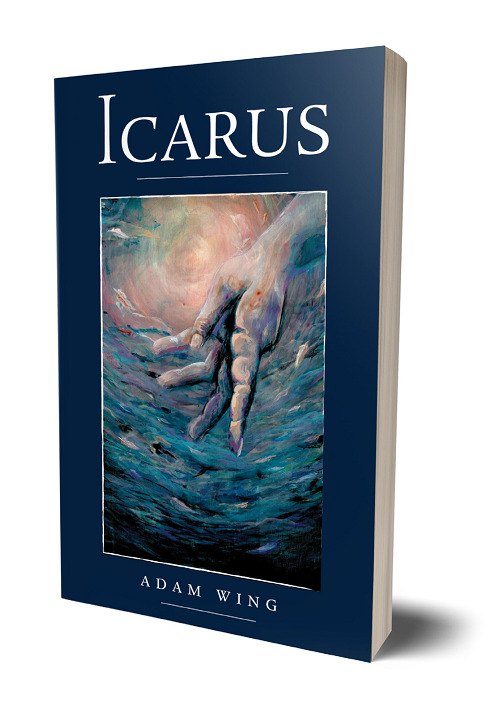
0 notes
Photo
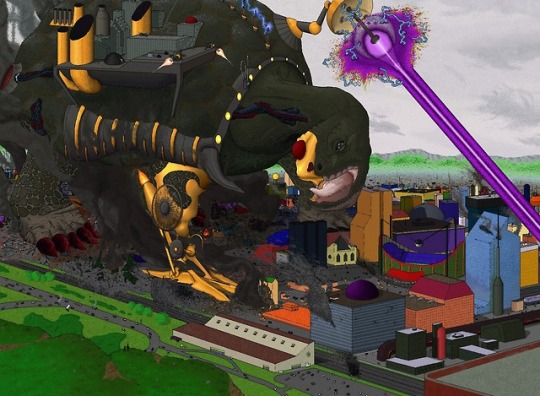
HAPPY WORLD TURTLE DAY!
0 notes
Text
Avengers: Infinity War (15/20): Predictably Prosaic. Surprisingly Successful.
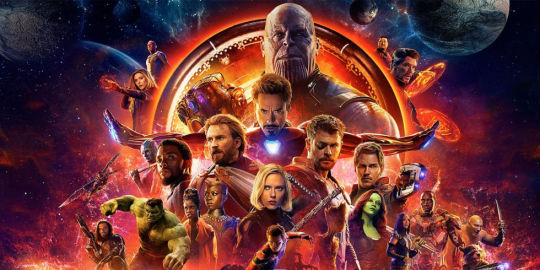
The first trailer for Avengers: Infinity War had me none-to-thrilled to get off my ass and go see the film. I mean, of course I was going to see it in theatres; I just didn’t think it would be very good. True, the past six months has shown somewhat of a renaissance in the Marvel Cinematic Universe, with Thor: Ragnarok re-infusing some fun into the franchise, and Black Panther slipping the tired-and-true MCU formula to show a bit of originality for a change. But the trailers just made Infinity War look, once again, so . . . generic. All epic battles, big menacing villains, and endless excuses for armour-plated movie stars to align themselves into group hero-poses.
In a way, I wasn’t wrong. But also, I was.
Because really, that’s all the film is. It begins with ‘Thanos is coming, guys. We’ve got to stop him,’ followed by a hundred-and-forty minutes of characters finding different ways to jump into his path and get stepped on. It’s all pretty MCU-standard. Nothing really stands out from other films, not the action or the dialogue, not the visuals, not the twists. Yet, I really did enjoy it. In a strange way, it even felt … fresh. At least a little, anyway.
But is that even possible? I mean, it must be. In all honesty though, I’m not sure how. What follows will be my best attempt to figure it out, exploring how this film differs from other MCU installments. Now, I’m probably going to have to go into specifics, so, you know, spoilers:
(SPOILERS BELOW)
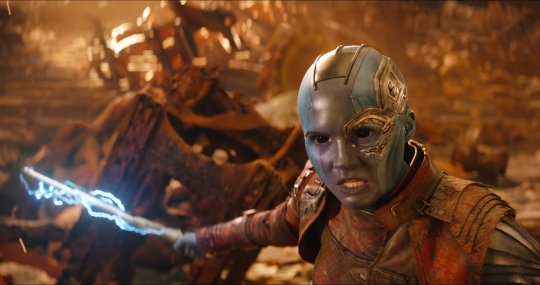
(SPOILERS!)
One concern I had going into Infinity War was that with so many characters and sub-franchises spun together, much of it would end up feeling more like a Marvel Grand Tour than an actual cohesive story, familiar characters shoe-horned into the plot with no real business or value in the narrative. Amazingly, this is not the case. Each character’s journey feels wholly organic and purposed against the larger backdrop of the collective. (With one small but notable exception: Bucky, whose presence, while not intrusive, is neither functional nor character driven. If you were to cut him from the film, not only would it not change the story, you would never think to wonder ‘where’s Bucky through all this?’.) Oh some characters are more or less important than others. Black Widow, Falcon, War Machine, Rocket, Drax, Groot, and even Captain America, and after the first twenty minutes or so Bruce Banner, are all relegated to sidekick status where their only job is to throw punches and crack-wise without really affecting what happens in the story. But their presence’s all make sense. To the extent that (unlike Bucky) you would notice if any was absent from the film. Deriving such a natural narrative flow from so many different sources, by itself, is a remarkable achievement.
But how is this achieved? Well Infinity War actually has a pretty interesting plot structure. At a glance, it appears to be one big climax to a meta-narrative that’s been building since the first Avengers film (some six year and thirteen movies back). But it does in fact follow the traditional three-act structure you expect from any major Hollywood blockbuster.
ACT 1: The Chaos of First Contact: Everyone who has anything to do with an infinity stone is suddenly, and unexpectedly, under attack. Some of these have an idea of what’s going on. Others do not. Some make it out both alive and uncaptured. Others do not. It’s abrupt and there’s absolutely no attempt beforehand to ‘set the stage’. (Historically, this is something I like to complain about. When a film assumes it has the audience’s emotional investment, having done nothing whatsoever to earn it. Infinity War might be one of the only cases where such a tactic proves effective. Because we are already invested. We know most these characters intimately by now, and anyone paying attention will have recognized that the franchise has been building to this for some time.) Anyway, it’s all very chaotic and it hits the loose community of heroes, splintering it into several different narrative arcs. Which brings us to…
ACT 2: Here we see the character settle into four different subplots, each with its own sub-protagonist: Iron Man, Thor, Scarlet Witch and Gamora. (Note that two these are exactly the person we’d expect given their previous roles in the franchise, while the others are the last we’d ever expect.) Each plot bends toward the others (Gamora’s getting a little extra push in hers from Thanos (get it?)) until they’ve merged into two main arcs: offence (kill Thanos) and defence (protect Vision). Thor’s successful weapon upgrade frees him to step into Scarlet Witch’s (defence arc), while Gamora’s death drives her surviving teammates into Iron Man’s (offence arc). All the while these, these two plotlines converging on the same thematic point: Stop Thanos.
ACT 3: Big Battle Fight-Zone! Villain defeats heroes in both the offensive and defensive plots.
So we have 1) Inciting Incident, 2) Setting Out to achieve the goal, and 3) Showdown. Unlike previous Marvel ensembles, the two main plotlines never come together. No one in any of the arcs has an idea what’s happening in the others (besides Doctor Strange, that is). Each arc, in fact, bares a structural resemblance to previous MCU films. And indeed, this is how Infinity War manages to juggle so many different characters and franchises. It doesn’t steer one mane arc around the map to pick up the others as it goes, but offers a complete re-shuffle, creating new groupings, and utilizing new protagonists. Each resulting plot, is quite small, fairly generic and not terribly interesting. But the narratives feel organic, and combined, they create a robust and immersive story.
But that begs the question: whose story? Which character is the film actually about? Oh, you could make the argument that as an ensemble Infinity War doesn’t have a main character. But for starters, the MCU has never produced an actual ensemble story. If you look close, Iron Man is the protagonist of the first two Avengers films. In Civil War, it’s Captain America. Even in the Netflix spinoff universe series, The Defenders, Daredevil tends to pull more focus than the others. So for this film to break away now would be completely unprecedented; and let’s face it, while Infinity War has some originality (in ways we’ll get to in a second), it was never intended to break the mould.
Additionally, it’s clearly not an ensemble because there are four characters distinctly set well above the rest in both importance to plot and audience empathy. And of these four, two prove to be by far more central than the others. (See ACT 2.) The audience’s goals are completely aligned with both Iron Man and Scarlet Witch, but there is no real interaction between these characters’; there is neither overlap, nor conflict. Does this mean they’re both separate protagonists? That the film is actually a pair of independent narratives that just happen to be told at the same time?
Well, no. Because what’s interesting (and quite rare) about Infinity War, is the main character may actually not be either of its PROTAGONISTS, but its ANTAGONIST.
When I say ‘antagonist’, I don’t mean ‘antihero’ (like Deadpool or Dirty Harry), and I don’t mean ‘protagonist who happens to be a villain’ (There Will be Blood). In such cases, though the main character may not be the most likable or moral person, they are still backed by the audience in terms of empathy and prioritization of goals. Thanos’s case is closer to Jack in The Shining. We actively cheer against him. Yet he drives the story and binds it together. Infinity War’s two main arcs, only really work as a single narrative, when that narrative is his.
And if you look at the plot from Thanos’s perspective, it’s actually extremely cohesive. He sets out to achieve his goal to collect all the stones and kill half the universe. He finds some early success before encountering the first big obstacle: he has to sacrifice a loved one to move forward. He does. (Act 1 Climax.) To reach his next goal, he must face a group of powerful fighters that want to kill him. They almost succeed but he’s saved by the very sacrifice he made in Act One (Act 2 Climax.) Finally he goes for the last stone. His enemies actually succeed in destroying it before he can reach it, but because of the power he’s achieved on his journey so far, he is able to resurrect it and finally achieve his goal. (Act 3 Climax.)
As narratives go, it’s not terribly evocative. It’s not a roller coaster of tension and surprises. (Then again, neither is the film as a whole.) But it does tie everything together quite nicely. What drama and excitement there is, is better found in the subplots because the stakes are higher for those who want to stop him. But these subplots only really work because of this half-invisible, counter-driven main plot.
And so, in a way, Infinity War uses the larger amalgamation of its characters almost more as a setting than driving forces in its narrative. There are of course a number of ‘character’ characters but the film doesn’t loop and flip all over the place to get them all together (as you might expect it to). It simply comes up with a few simple, linear stories for them, which combined create a broader, enjoyable whole. Offering the antagonist’s arc as a central narrative is a fairly elegant solution to the ‘too many franchises’ problem, transforming what might have felt like a scattered no-story series of events into a classic Hero’s Journey (or, in this case, Villain’s Journey) structure.
#Avengers#Infinity#War#Marvel#MCU#Marvel Cinematic Universe#Movies#Comics#Comic Book#Films#Review#Reviews
1 note
·
View note
Text
A Quiet Place (15/20): Worth The Journey, Though Not Without Its Flaws
REVIEW (NO SPOILERS)
A Quiet Place is about a teenage girl and her relationship with a father she used to be close to. It’s about unable to communicate their pain to one another, they have drifted apart. Yes, it is. Yes, it is. …Yes, it IS. Everything else is quite ancillary to the family drama at the film’s core. Which is good, because as a family drama, it’s a very successful movie. As a monster movie on the other hand, even as a thriller, it has some pretty serious flaws.
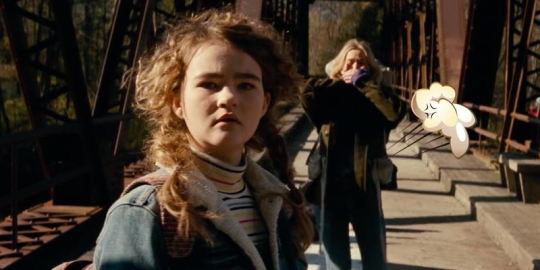
Honestly, I wouldn’t even say the film’s thriller aspects are particularly bad. They’re just, never quite thrilling is the thing. Watchable as hell. Oh yes, I was totally engaged, even mildly engrossed viewing A Quiet Place. It’s a cool idea and well expressed. Just, I rarely felt all that tense. Which is kind of a fatal flaw in a thriller. A flaw, which to my eyes, can be attributed to the following:
1) TENSION SHOTS – Long (often static) shots tend to draw enormous tension. These shots have been a staple in most the good thrillers I’ve seen over the years. Now, I’m not usually one to notice camerawork, but it was obvious, even to me, that A Quiet Place was shot (or edited) with an extremely hurried eye. No shot seemed to last any longer than a second-and-a-half, and as a result, there is no tension, no suspense in any of them.
2) MONSTER REVEAL – As we all learned in 1975 when Jaws didn’t have the budget to do otherwise, withholding the monster is much more frightening than showing it. No matter how scary it looks. True, we don’t see much of A Quiet Place’s monsters until later in the film, but we do see some of them. And pretty damn early. Enough that we don’t need to see any more. It’s no longer a mystery hiding in the shadows, just another scary spider-thing.
3) ACT STRUCTURE – Like many monster movies that came before, A Quiet Place occurs in a universe with very specific rules, where, for the film to make sense, these rules need to be understood. (e.g. Werewolves transform on a full moon and have contagious bites.) In this case, the monsters are blind but any noise—even a whisper—will draw their deadly attention down on you. Such rules are typically established in Act 1 as the stakes are also demonstrated for the audience. Unfortunately, A Quiet Place doesn’t really have an Act 1. Or to be more accurate, its Act 1, at about 4 minutes long, fails to fully establish these rules. Oh, the stakes are crystal clear by its conclusion, but that’s about it. This pushes the lions share of ‘rules establishment; into Act 2, which should be all about building significant amounts of tension to be released in the final act. But no, Act 2 now has to spend so much time showing us the specifics on how the world works that it never quite gets around to scaring us.
Despite these issues however, as I mentioned above, A Quiet Place is pretty damn enjoyable. Where it fails to find suspense, it quickly and effectively finds heart. It does not take long for you to come to care about each character in the film. And the crises and resolutions of relationships at the film’s climax are as powerful and affecting as any crises of dangers ever could be.
So yes, go watch A Quiet Place. It’s never not enjoyable. Just don’t expect it to scare you pants off.
2 notes
·
View notes
Text
Ready Player One (9/20): How Much Do You Like Being Reminded of the Things You Like?
REVIEW (NO SPOILERS)
Alright let’s stick with surface entertainment. Because Ready Player One aspires to nothing more than that. (And that’s perfectly fine. Neither does The Fifth Element, Aliens, or for that matter, Casablanca.) The question is, how successful is it?
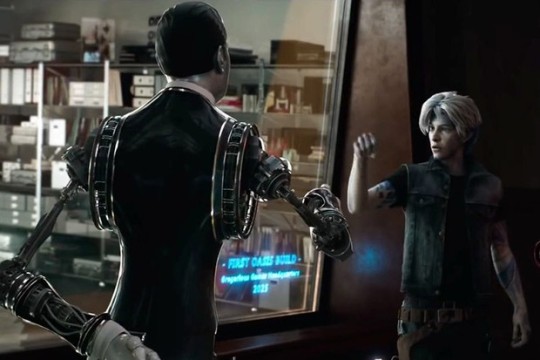
Answer: not terribly.
So what can I say about it? Well, how about, at the very least, I wasn’t bored. No, through the film’s considerable 140-minute runtime, I was in fact actively engaged in what was happening onscreen. Not, entertained. Not interested or filled with suspense. Certainly not enthralled. No, I’d say I was engaged in the same way I might find myself, picking at a scab for two-and-a-half hours.
How about this: the premise is dumb. This is a fault of the source material, of course (and something I could never really get past, likely tainting my experience of both book and film) but little to no effort has been made here to rectify the problem. What’s dumb about it, is that it assumes that if someone created a parallel VR universe, and EVERYBODY IN THE WORLD spent most their time in it, its primary application would be nostalgia-based video games and role-playing. That the cultural collective consciousness of THE ENTIRE WORLD would align to that of your average 1993-2003 era teenage boy.
Not only does that dismiss the existence of ‘adult reality’ as a cultural force (which it very much is), it assumes an objective superiority of the North American sub-sub-sub-SUB-culture that is ‘nerdy, suburban, teenage white-boy’. Yes, both book, and film are absolutely encased in this limited framing of reality. The protagonist is a socially awkward outcast in real life, but in the video game world (which is the world that matters), he’s got both status and cool friends. He’s admired. He meets a beautiful girl whose beauty only he cans see. Who falls in love with him . . . mostly because he’s so good at all the important video game stuff. And together, they are the righteous, defending their video game life against evil forces that would hinder their playing of video games and exchanging pop-culture trading cards. No shit.
Oops. Sorry, that puddle was a little deeper than I intended. I said we’d splash around on the surface, and here I am talking about bad cultural framing. How about this: the characters never do anything except exactly what you expect them to. This is because none of them is anything more than an archetype pulled from the very movies constantly referenced in the film. For the most part, the acting isn’t very good either, but that’s actually less important than you’d imagine because for at least half the film, we see the characters as their VR world avatars so they pretty much just look and act like anime fan-art.
How about the story? Well, no. As I said, it’s strong enough that it kept my eyes on the screen. Spielberg is still Spielberg, and at the very least he knows how to mix visuals and onscreen action with a certain degree of competence. There’s even a sequence in the middle that takes place in the hotel from The Shining that I’d almost call good. (Probably would have been, if they’d actually gotten the rights to Jack Nicholson’s image, instead relying on axe-wielding zombie-lady to chase everybody around.) But not unlike the film’s endless visual references, every single plot-point seems to be the most generic, scrubbed-of-soul version of that particular scene you could steal from the collective consciousness of filmgoers. Which is to say, it doesn’t just rely heavily on clichés, it seems to actively avoid any attempt at original storytelling. Also the film’s like 30% expository voice over. So that’s . . . pretty bad too.
So do I have anything good to say about RPO? Yes. The score. The score is excellent.
1 note
·
View note
Text
Rampage (7/20): The Charm of a Classic Video Game – Not Found Here
REVIEW (NO SPOILERS)
What little enjoyment can be found in this latest of films based on video games comes entirely from the strength of its heroes. The Rock “Dwayne” Johnson has always carried himself with maximum charisma, Naomie Harris absolutely owns every role she takes on, and Jeffrey Dean Morgan has such a strong onscreen presence, at times you can almost feel his gravitational pull on everyone else in the film.
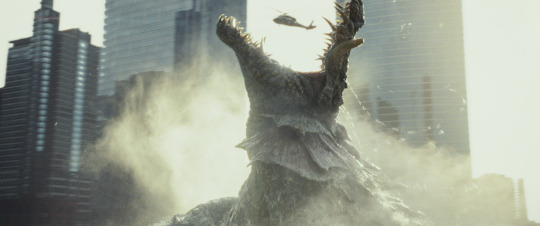
But that’s about it. And these main characters played by these talented performers, are so thin, even they become boring before the film’s first hour has expired. Protagonist, Davis Okoye (Johnson) is little more than a caricature of The Rock in his best rolls. (Or to put it another way, exactly the same character we see in 90% of Johnson’s movies.) Kate Caldwell (Harris) has next to no reason to be in the film (other than its formula requiring a female lead). Mostly she’s used to spout bits of exposition. And the Harvey Russell (Morgan) whose presence was perhaps the closest Rampage gets to interesting, feels completely out of place, and out of sync with the rest of the movie.
The monsters? No. Just, no. I guess we’ve just seen so many giant monsters at this point, haven’t we? What do we get from these that we haven’t had from at least three previous giant-monster movie sources before? Nothing at all. Just . . . generic building smashers. The movie version of my favorite childhood video game (which just happened to be about building-smashing monsters), desperately needed . . . better. Even in 8-bit rendering, they had more personality.
And finally, the human villains. Now these are fucking awful. The acting for these characters is terrible. But I can’t fully blame the actors for this because as bad as the acting is (and it’s quite bad) the writing is much, much worse. Not only is every single line out of their mouths a clunky infodump of exposition, as often as not, it’s repeated exposition. Even for a bad movie these characters are the pits, who could easily be the worst part of any Sharknado sequel.
And finally, I suppose, the story. What story? There is no story. I’ve mentioned exposition twice already because that’s what so much of the dialogue seems to be. Well guess what, the story’s pretty much just exposition too.
2 notes
·
View notes
Text
Bloody Tokyo by Brent Thomas: A Bloody Good Time
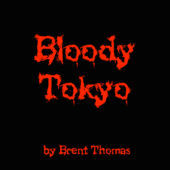
It's not surprising that a story about neo-classic vampires (meaning the scary-sexy nightstalkers they've become in recent decades) fits so well over a gritty Tokyo backdrop. Both VAMPIRES and JAPANESE CULTURE are cornerstones in the fast-expanding culture we like to call 'nerd'. No doubt other such stories exist. What you get in Bloody Tokyo though, is a level of detail and nuance rarely present in cross-culture genre fiction. Author, Brent Thomas (who has lived in Japan as long as anyone's lived anywhere), offers—not the cliched anime/manga stereotypes we so often get from a Westerner writing about Japan—but what feels like a hardboiled detective story, familiar enough with the world it creates to find drama in all its colourful idiosyncrasies.
Check out the link below!
https://itunes.apple.com/us/podcast/bloody-tokyo/id1330463992?mt=2
1 note
·
View note